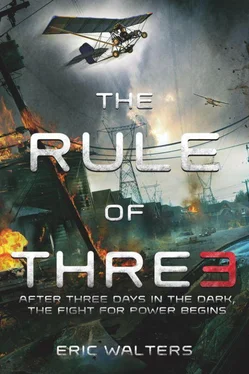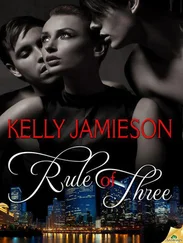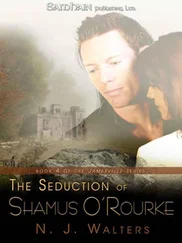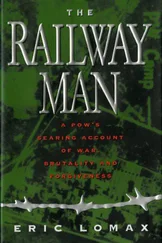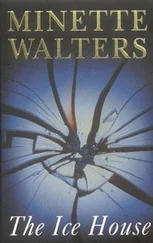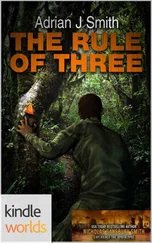“We can’t do it alone. My family can’t do it alone. Neither can my friends or the people on my street. But all of us, this neighborhood, together we can. I want to know, right now, today, who’s going to stand with us. Who wants to survive? Who wants their family to be safe, to be fed, to live in a place where they’ll be cared for and treated fairly?”
Herb stepped forward. “Stand up. If you’re with us, I want you to get to your feet, right now.”
I held my breath as the crowd seemed to be looking at one another, each of them afraid to be the first. Then a man and woman close to the front got up, then a family at the back, then others throughout the audience and then, almost all at once, like a wave the entire audience seemed to jump to their feet. Some were cheering and some climbed onto their chairs, followed by more people doing the same. They held their hands above their heads like they were reaching for the ceiling.
Herb shook my hand and then raised it above our heads. “And you were worried about what to say?”
“We did it,” I said.
He kept smiling but shook his head. “No,” he said. “You’re wrong.”
“But… but…”
“Words have been spoken; now we need action. The hard part is about to begin.”
“I know it’s going to be hard,” I agreed. “But we can do it, right?”
He shrugged.
“You do believe we can do it, right?” I asked again, this time more emphatically so I could be heard over the cheering crowd.
“It doesn’t matter what I believe,” Herb said as he moved close and put his mouth against my ear. “It’s what they believe that matters. And that’s why I wanted you to speak. You have no doubts and that’s what they needed. Certainty. You gave all of us what we need to have a chance at succeeding. Now we’re going to see how big a chance it really is.”
I looked around the room. Soon the crowd would quiet down again and they would want to hear about the details. We were ready for that; we knew what we were going to say. But for the moment it was nice just to see the effect we were having. People had smiles on their faces, and they were patting one another on the back. They were people filled with hope. I just had to believe it wasn’t false hope that I’d offered them.
Mr. Peterson made another pass with the tractor, changing the grassy field underneath the high-voltage electrical towers into a real field for crops. He was turning the soil on land that hadn’t been planted or worked for fifty years or longer, since they first put the towers from a far-off power plant through this corridor to bring electricity to the people in this new community. Now, with no power in the lines strung above, it was once again being turned to what it had been before the first suburban tracts were built here—a working farm. The earth looked dark and black and rich. Mr. Peterson had said it would be productive soil.
Throughout the neighborhood, smaller patches—front yards and backyards and fringes of paved areas—were being turned over. There were nine rototillers and they were all in operation, but still a lot of the work was being done by hand—people with shovels and picks getting the land ready for planting. Every available space was being put into production to grow food. Because it was late spring, there was still time to plant for a fall harvest.
It hadn’t taken long to get it all started. It had only been three days since that meeting. People kept coming up to me, offering thanks, telling me how much they believed in what we were doing. I tried to remain positive and confident.
I waved as Mr. Peterson rumbled by on his tractor. He raised a hand and then put his eye back on his work. The land he was tilling was on a slight slope and he had to work across the face of the hill so that when it was planted the furrows would hold the rain—and soil—rather than let it all erode and run down into the creek. The strip was long and narrow, blocked in on one side by the backyards of houses and on the other by the big steel-and-cement fence that separated the field from the highway. The fence had been built as a noise barrier to block out the roar of high-speed traffic on the road. Now it was a different type of barrier. It stood three times as tall as me, solid and thick and built atop a small hill. It now guarded the whole north side of the neighborhood.
At two-hundred-foot intervals construction teams were building ledges where sentries could stand and look over the fence. The ledges weren’t much larger than what was needed for a sentry or two to perch. It all reminded me of the cardboard castles we’d constructed in elementary school when we were studying medieval times. This was a strange, real version though. I wished we had a moat so that we could build a drawbridge—but actually with two creeks forming part of our eastern and southern boundaries I guess we did, sort of.
Mullet Creek was so low from all the water that was being drawn upstream that it was now only a few inches deep. It would only protect us from invaders who were afraid of getting their feet wet. As I stood there, watching and thinking, I was continually passed by people going to and from the creek with water containers. It was mostly kids doing the work. Almost everybody said something to me as they passed. It could just be a simple hello or good morning, but some talked about my speech, about the plan, about what was happening.
In a neighborhood where I’d lived fairly anonymously my whole life I was now known by everybody. It was strange. Then again, what wasn’t strange?
I walked along a thin strip between the turned soil and the edge of the creek where a defensive fence was being constructed. The sounds of pounding hammers and handsaws were mixed with loud talk and good-natured laughter. It was as if the people were focusing happily on the task at hand instead of the reality of why the task was necessary to begin with.
There were dozens of men and women at work. Todd’s father had become one of the lead hands. He wasn’t making furniture, but those same skills were being put to work in building the walls that would protect us. Todd was helping him and had been working so hard I hadn’t even seen or spoken to him. Funny, up until this time, the only thing Todd had been able to do with a hammer was hit himself on the thumb, but he was showing some true skill. I guess the real upside to this was that it meant when he was wielding a hammer he wasn’t obsessing about holding a gun.
I was impressed by how quickly the wall was going up. Half the gap between the last house and the highway was closed. The barrier was built of materials recycled from the fences that used to separate neighbors. It wasn’t very high, and didn’t look that solid, but it was becoming another boundary between us and the outside world. The fences were tying us together, making us into one group, separating us from everybody else.
Five families had chosen to remain independent and not join the effort, so their backyard fences remained. Their rights were being respected, although I didn’t think everybody respected their decision. My mother had told me there had been rumblings about expelling them from the neighborhood, but she was adamant that their right to determine their own destiny was going to be protected. To do otherwise would have run completely contrary to what we were doing—trying to preserve an island of order in a sea of disorder.
I was glad the dissenters were down to only five families. Originally there had been eighteen that didn’t want to accept our plan. In time I expected the last five to join as they realized surviving on their own was not a long-term possibility, although I guessed that’s what they were hoping—that this wasn’t going to be long term.
Читать дальше
